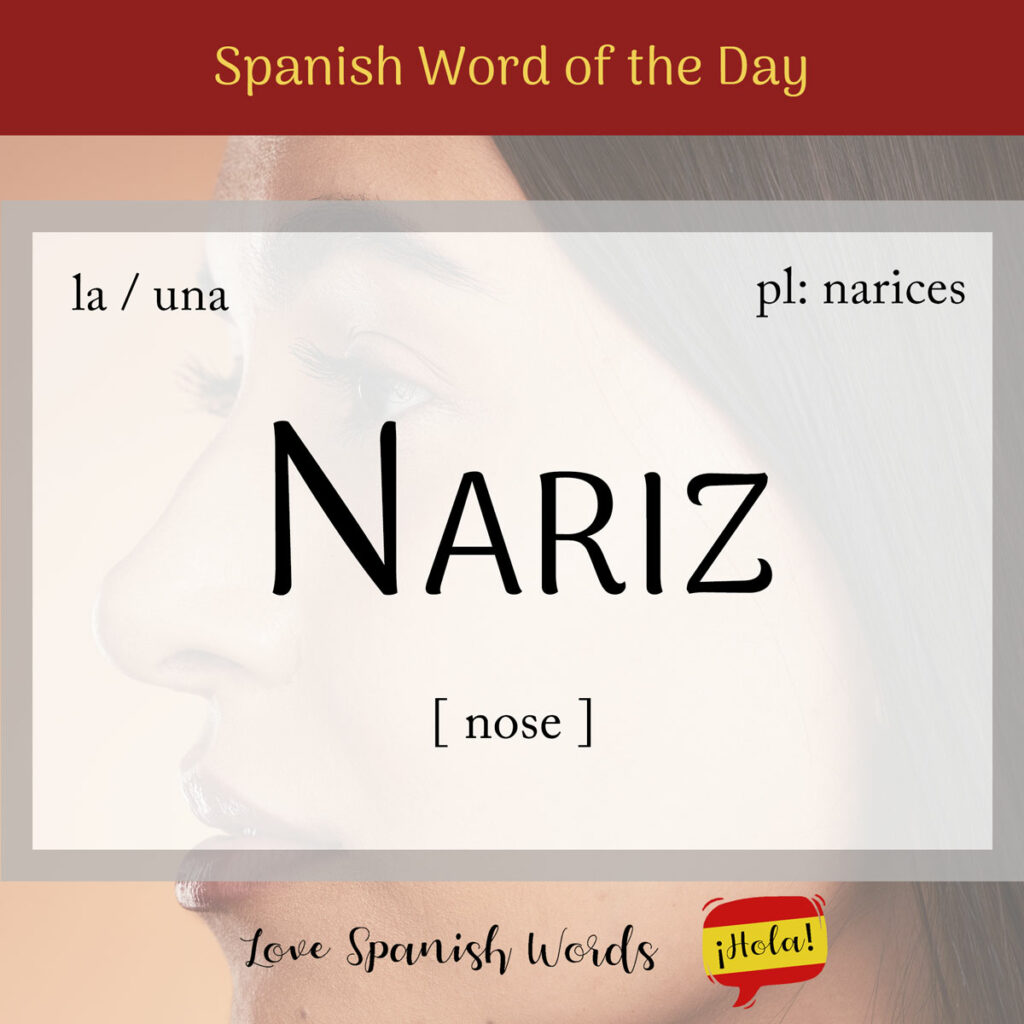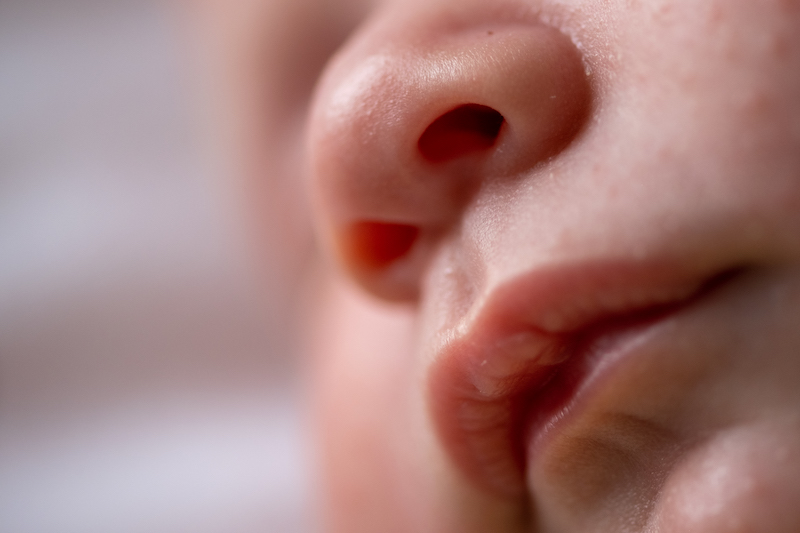Nariz, which is the word for nose in English, originates from the Latin Word nares.
As we know, la nariz plays an important role in our lives because it allows us to breathe and smell. Today we will learn some Spanish words that relate to nariz.
Latin American Pronunciation
European Pronunciation

The feminine noun nariz takes the following definite and indefinite articles:
- la nariz= the nose
- las narices= the noses
- una nariz= a nose
- unas narices= some noses
Esta mañana me golpeé la nariz contra la pared.
This morning I hit my nose on the wall.
The nariz is only one of the main components that make up la cara or the face. Here are a few other parts of the face.
- la oreja = the ear (plural: las orejas)
- el ojo = the eye (plural: los ojos)
- la ceja = the eyebrow (plural: las cejas)
- la pestaña = the eyelash (plural: las pestañas)
- la mejilla = the cheek (plural: las mejillas)
- el labio = the lip (plural: los labios)
- la boca = the mouth (plural: las bocas)
- la frente = the forehead (plural: las frentes)
- la barbilla/el mentón = the chin (plural: las barbillas/los mentones)

Tengo un grano enorme en la nariz.
I have an enormous pimple on my nose.
The nose is one of the most important parts of the face. We use it mainly to respirar (breathe) and to oler (smell). Let’s look at the anatomy of it to learn some other Spanish words. The nariz has two small holes called fosas nasales (nostrils). The fosas nasales also refer to the nasal passages that lead up the tabique nasal (septum). As we know in English, the cartilage is the flexible bone-like material on the tip of our nose. In Spanish, this is called cartílago.
The inside of the nose is lined with a thin layer of tissue called la membrana mucosa (mucous membrane). This membrana mucosa warms up the air, moistens it, and creates mocos (mucus). We usually refer to it as snot or boogers in English. These mocos along with the pelos (hair) inside our nose, help capture dust, germs, and other small particles like dirt and pollen. When you estornudar (sneeze), it’s because your mocos and pelos trapped these unwelcome particles and shot them out. This is helpful so that the particles don’t go through to irritate the pulmones (lungs).
¡Tengo algún problema con mi nariz! ¡No puedo respirar correctamente!
I have a problem with my nose! I can’t breathe properly!
El niño se sacó un moco de la nariz.
The boy took a booger out of his nose.

If you want to talk about an animal’s nose in Spanish, you need to use the words hocico or trompa, which equate to the English words snout/muzzle and trunk respectively.
Colloquial terms for the word ‘nariz’
There are a few colloquial references when speaking about the size of a nose in Spanish. They use the diminutive and augmentative endings. They are as follows:

- narizota = big nose
- naricita = little nose
- narizón/narizona = big-nosed person (male and female)
- narizudo/narizuda = big-nosed person (male and female)
- narizoncita = big-nosed person (said in a friendly-sounding way)
El actor necesita ser narizón para su papel en la película.
The actor needs to be big-nosed for his role in the movie.

Idiomatic expressions featuring ‘nariz’
Tener la nariz tapada
Literal translation: to have your nose covered
English meaning: to not be able to breathe well through the nose
Meter la nariz
Literal translation: to put your nose in something
English meaning: to poke your nose into someone’s business
Estar hasta las narices
Literal translation: to be up to the nose
English meaning: to be fed up with someone or something
Hacerlo de bajo de los ojos y narices
Literal translation: to do it under eyes and noses
English meaning: to do something under someone’s nose (to have missed what they did)
Ser de nariz parada
Literal translation: to be someone with a standing nose
English meaning: to be stuck up
Picarse la nariz
Literal translation: to poke your nose
English meaning: to stick your finger into your nose

